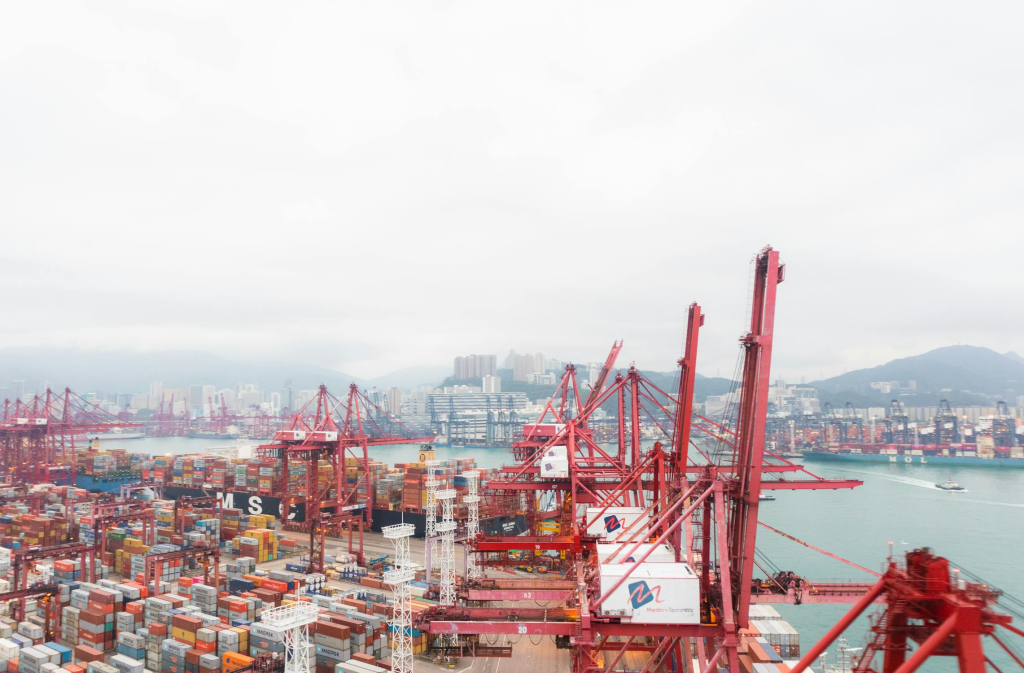The smooth transportation of commodities between continents and regions is made possible in today’s globally linked world by freight. With the help of this intricate and ever-changing industry, companies may tap into distant markets and customers can shop for a wide variety of products.

Economic growth, international collaboration, and technical progress are all driven by the efficient and dependable movement of commodities, from everyday needs to high-tech discoveries.
This article delves into freight’s complex function in today’s economy, shedding light on its importance in areas such as supply chain management, trade facilitation, market accessibility, and sustainability initiatives.
As we explore the important roles and difficulties faced by the freight industry, we come to appreciate its vital role in our everyday lives and the world economy as a whole.
What Is The Role Of Freight?
Freight plays a crucial role in the global economy by facilitating the movement of goods from manufacturers to consumers. Here’s a detailed overview of its roles:
Economic Impact
- Trade Facilitation: Freight enables international and domestic trade, allowing businesses to export and import goods.
- Economic Growth: Efficient freight systems contribute to economic growth by reducing costs, improving productivity, and enhancing market access.
- Job Creation: The freight industry provides employment opportunities in transportation, logistics, warehousing, and related sectors.
Supply Chain Efficiency
- Inventory Management: Effective freight services help businesses maintain optimal inventory levels, reducing storage costs and avoiding stockouts.
- Just-in-Time Delivery: Freight services support just-in-time manufacturing and retail practices, ensuring that goods arrive precisely when needed.
Market Accessibility
- Access to Markets: Freight enables businesses to reach wider markets, including remote and rural areas, thereby increasing their customer base.
- Global Connectivity: International freight services connect markets across the globe, allowing for the exchange of goods and cultural exchange.
Technological Advancements
- Innovation: The freight industry drives technological advancements in transportation, logistics, and supply chain management.
- Efficiency Improvements: Technologies like GPS tracking, automated warehouses, and advanced data analytics improve the efficiency and reliability of freight services.
Environmental And Sustainability Considerations
- Green Logistics: The freight industry is increasingly adopting sustainable practices, such as using eco-friendly vehicles and optimizing routes to reduce carbon emissions.
- Regulatory Compliance: Freight operators must comply with environmental regulations, which drives innovation in sustainable practices.
National Security
- Strategic Importance: Freight infrastructure is vital for national security, ensuring the timely movement of essential goods, including food, medical supplies, and military equipment.
- Disaster Response: In emergencies, freight services are crucial for delivering aid and relief supplies to affected areas.
Challenges And Opportunities
- Infrastructure Investment: There is a continuous need for investment in transportation infrastructure to accommodate growing freight volumes.
- Regulatory Changes: The industry must adapt to changing regulations related to safety, labour, and environmental standards.
- Technological Disruption: Emerging technologies like autonomous vehicles and blockchain present both challenges and opportunities for the freight industry.
Freight is the backbone of the global economy, supporting trade, economic development, and technological innovation while facing ongoing challenges and opportunities for growth and improvement.
Freight | What Is It?
When commodities are moved in large quantities by different modes of transportation like trucks, trains, ships, and aeroplanes, this is called freight. Raw materials, finished items, consumables, and everything else with a shelf life are all part of it.
The logistics, transportation, warehousing, and distribution processes that bring these items from their starting location to their end destination are all part of the freight sector.
To guarantee the effective and dependable delivery of products to markets and consumers, freight services are crucial to the operation of global trade and supply chains. Global economic growth, market accessibility, and industry-wide efficiency are all dependent on this complex system.
There is a complex web of transportation options that the freight sector uses, and each one has its own set of benefits. Transport via truck, for instance, is adaptable and door-to-door; by rail, bulk over land is inexpensive; by sea, huge quantities of products may be moved; and by air, time-sensitive shipments can be assured of rapid arrival. To optimize routes, save prices, and satisfy delivery deadlines, sophisticated logistics management is required to coordinate different modes.
Why Is Freight Important?
Freight is important for several reasons, each contributing to the seamless functioning of the global economy and our daily lives. Here are the key reasons why freight is essential:
Economic Growth And Development
- Trade Facilitation: Freight services enable the exchange of goods between regions and countries, fostering international trade and economic integration.
- Market Expansion: By transporting goods efficiently, freight allows businesses to expand their markets, reaching customers both domestically and internationally.
- Economic Multiplier Effect: The freight industry generates employment and stimulates other sectors, including manufacturing, retail, and services.
Supply Chain Efficiency
- Inventory Management: Efficient freight systems help businesses manage their inventories effectively, reducing storage costs and minimizing stockouts.
- Just-in-Time (JIT) Delivery: Freight supports JIT manufacturing and retail strategies, ensuring goods arrive precisely when needed, and enhancing operational efficiency.
Consumer Access And Convenience
- Product Availability: Freight ensures that consumers have access to a wide variety of products, from fresh produce to electronics, regardless of their geographic location.
- E-commerce Support: The rise of online shopping relies heavily on freight services for the timely and reliable delivery of goods to consumers.
Technological Advancement
- Innovation Driver: The freight industry spurs technological innovations in transportation, logistics, and supply chain management, improving overall efficiency and reliability.
- Adoption of Advanced Technologies: Technologies such as GPS tracking, automated warehouses, and data analytics enhance the capabilities and performance of freight services.
Environmental And Sustainability Efforts
- Green Logistics: The industry is adopting sustainable practices, such as using fuel-efficient vehicles and optimizing routes to reduce carbon emissions.
- Sustainable Development: Freight services are essential for the distribution of eco-friendly products and technologies, promoting sustainable economic growth.
National Security And Emergency Response
- Strategic Importance: Freight infrastructure is crucial for national security, ensuring the timely movement of essential goods, including food, medical supplies, and military equipment.
- Disaster Relief: In emergencies, freight services are vital for delivering aid and relief supplies to affected areas, and supporting recovery efforts.
Challenges And Opportunities
- Infrastructure Investment: Continuous investment in transportation infrastructure is needed to support growing freight volumes and maintain efficient operations.
- Regulatory Adaptation: The industry must navigate and adapt to evolving regulations related to safety, labour, and environmental standards.
- Technological Disruption: Emerging technologies like autonomous vehicles and blockchain present both challenges and opportunities, driving innovation and improving efficiency.
Freight is a cornerstone of the global economy, essential for trade, supply chain efficiency, consumer access, technological progress, sustainability, and national security. Its importance extends beyond mere transportation, influencing various aspects of economic and social development.
Conclusion
Freight is the lifeblood of the global economy, underpinning the intricate web of trade, supply chain management, and consumer access that defines modern life.
Its importance cannot be overstated, as it enables businesses to expand their markets, supports just-in-time delivery systems, and ensures that products reach consumers wherever they may be.
The industry is a key driver of technological innovation, continually adopting new technologies to enhance efficiency and sustainability.
Moreover, freight plays a critical role in national security and disaster response, ensuring the swift movement of essential goods and aid during crises.
As the world continues to evolve, the freight industry faces both challenges and opportunities, from infrastructure investment needs to regulatory changes and technological disruptions.
In recognizing the vital role of freight, it becomes clear that supporting and innovating within this sector is crucial for sustained economic growth, environmental sustainability, and overall societal well-being.
As we look to the future, the continued development and optimization of freight services will be essential in navigating the complexities of global commerce and maintaining the interconnectedness that defines our modern world.
Click this important site for more information.


Leave a Reply